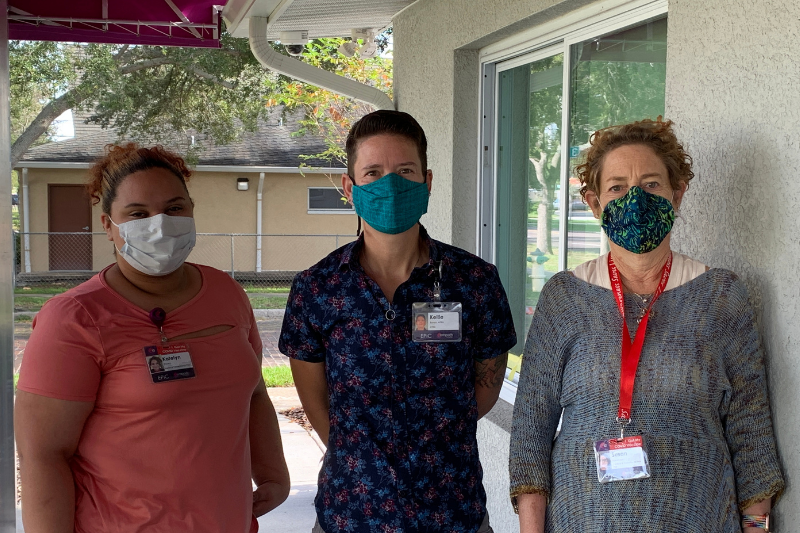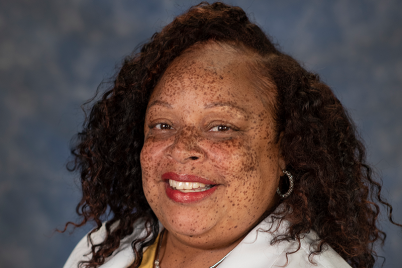Meet the Team: (from left to right) Katelyn Rosario, medical receptionist, Kellie Bonsor, ARNP, and Susan Finkelstein, RN
BY KAREN DAVIS-PRITCHETT, Empath Health Vice President of Access & Inclusion
Imagine a place where anyone could find the answers they need about their sexual health, free of judgment.
Fortunately for the St. Petersburg community, the new Empath Partners in Care (EPIC) Sexual Health Center combines inclusive, safe sex education with treatment and prevention services in one convenient location.
“One of the questions we frequently get is ‘where can I ask questions about safe sex and get tested for sexually transmitted infections,’” said Susan Finkelstein, RN, medical and educational services manager for EPIC. “So, we decided to combine all of the different potential resources in one place.”
Rates of new sexually transmitted infections (STI) are concerning, especially within the Black community. On average, African Americans are about six times more likely to become infected with an STI and account for nearly half of new HIV infections.
Currently, Florida has the highest rate of new HIV infections in the United States. In Pinellas County, gonorrhea, chlamydia, and congenital syphilis have also been on the rise for several years. The uptick in infections can be attributed to a hesitancy to seek education and treatment because of lack of economic resources, access barriers, lack of culturally responsive providers, and past experiences with discrimination.
When people are too afraid to ask questions about their sexual health, they may turn to the internet or other sources that can be unreliable. Symptoms may not be present with some STIs and can cause long-term health problems if untreated, making the need for education and testing even more important.
“The only way we’re going to decrease the rate of STIs in the community is by education, rapid treatment, and prevention of transmission,” added Finkelstein. “Those are the three key goals of the program.”
EPIC’s Sexual Health Center prides itself on being a sex-positive environment to encourage questions and eliminate misinformation. All sexual orientations, gender expressions, relationship styles, and lifestyle choices are accepted without judgment.
“From the time somebody walks in, they tell us who they are. They tell us what they need. Then we follow up by providing those services or information,” explained Finkelstein.
This includes having a conversation with the client to ensure that we are providing the best testing, treatment and education. Clients have access to rapid STI testing, including free HIV testing. Should a test come back positive, clients can start treatment in the office that day and leave with a prescription if additional doses are required.
Along with educational materials to prevent future infections, clients have access to prevention tools such as free condoms and dental dams. If HIV is a concern, the Sexual Health Center also offers prescriptions for PrEP (pre-exposure prophylaxis), which can help prevent infection, and PEP (post-exposure prophylaxis), which can be taken within 72 hours of potential exposure.
The Sexual Health Center is open six days a week. No appointments are necessary, ensuring it is easy for anyone to receive the care they need in a welcoming environment.
“We don’t want people to be afraid to walk in,” added Finkelstein. “The EPIC Sexual Health Center is a place where everyone can be safe, comfortable and receive support.”
Learn more about the EPIC Sexual Health Clinic by visiting IfYouSex.org.








